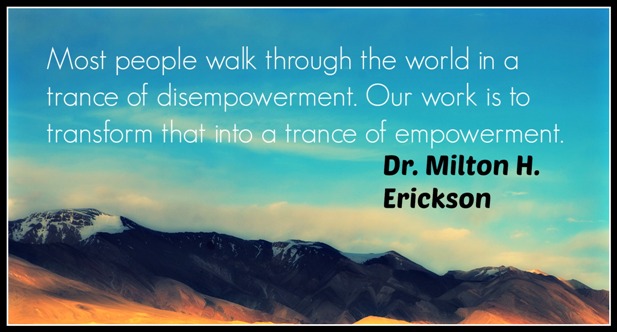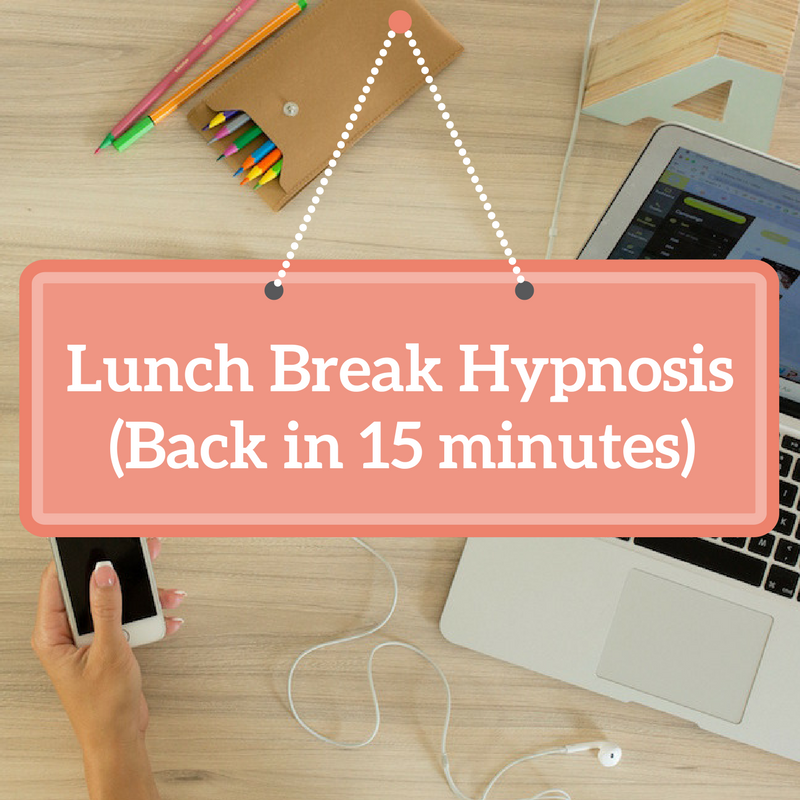How Does Hypnosis Work? It's All In Your Head
How does hypnosis work? There are many
theories about the actual mechanics of hypnosis. Before considering the
“how” of hypnosis, it’s important to look at a more important question:
Does hypnosis work?
There’s no point in looking at the mechanics of hypnosis if it doesn’t really work in the first place.
(If you're interested, you can learn all about the ins and outs of hypnosis in 5 days with this free mini course.)
How Does Hypnosis Work?
A placebo effect?
Theories
as to how hypnosis works range from the idea that hypnosis produces
changes in brain activity, to the idea that the subject is "method
acting,” to the notion that results are induced by the placebo effect.
Hypnosis
has been described as a "nondeceptive placebo.” The placebo effect can
be produced by inert pills, by sham surgery, or by false information. It
is a simulated treatment for a disease, or other medical condition,
intended to be convincing to the recipient, which results in a perceived
or actual improvement in a medical condition.
The
placebo effect is an improvement in health, which can be directly or
indirectly influenced by the mind. Hypnosis is a process, where the
subconscious mind accepts suggestions, such as going to sleep and
reducing pain. Unfortunately, the placebo effect seems to have a bad
connotation.
As far as I’m concerned, if something’s helpful and healthy, then it’s a success. No matter how the results produced through hypnosis are produced in the brain and psyche, we know that hypnosis work by communication with the unconscious mind.
How Does Hypnosis Work?
Applications
How does hypnosis work to help people? Hypnosis
has been used in forensics, sports, education, physical therapy and
rehabilitation. Clinicians may use hypnosis to treat depression,
anxiety, eating disorders, sleep disorders, compulsive gaming, and post
traumatic stress. Certified hypnotherapists treat smoking and weight
management. Hypnosis has been used by artists for creative purposes.
Sports personalities have been known to use hypnosis to improve
performance, as well.
More
and more research and clinical trials have shown that hypnosis can be
remarkably effective for a wide variety of conditions. For example, a
study published in the June 2007 Journal of Paediatrics showed
that hypnosis produced a significant drop in the severity and duration
of headaches in children, and even a drop in the frequency of the
headaches themselves. A University of Iowa meta-analysis showed that
hypnosis was three times more effective than nicotine replacement when
it came to giving up smoking.
How Does Hypnosis Work?
Conscious and Unconscious
Conscious and unconscious are really just shorthand terms to describe the general characteristics of the human mind. The "conscious mind" is the bit where we tend to "live" - the bit you might think of as "you." If there's a little voice reading these words out loud in your head, that's the conscious mind talking. The unconscious mind is pretty much everything else!
The
unconscious controls all of the autonomic processes that you don't have
to think about - the heart rate, the blood pressure, tissue growth,
cell regeneration, the immune system and so on. It's where our
thoughts, memories and accumulated experience reside. It controls our
emotions, our habits and our responses to the world.
In
many ways, it creates that world for us. The unconscious mind handles
about two million bits of sensory information every single second. The
conscious mind deals with about seven. That means that the reality
you're actually aware of from moment to moment has been brought to your
conscious attention by the unconscious, in a sort of Cliff Notes
version, choosing seven bits which it thinks are important from the two
million it's just processed.
The
conscious mind is more logical, critical and analytical - it's
constantly making value judgments. If somebody were to say to you, “You
really should give up smoking; it's bad for you,” you're highly unlikely
to become a non-smoker on the spot. You're more likely to come up with a
dozen, rational sounding reasons as to why you should carry on smoking,
or you might tell the person to mind his own business. Even if you do
consciously accept that you should give up smoking, it's not the
conscious part of the mind that's keeping the habit in place.
The
unconscious part of the mind, on the other hand, is much more
accepting. It's also quite literal and tends to take things personally,
relating any information it receives to you as an individual. Hypnosis
works by bypassing the critical conscious mind (usually through
relaxation or linguistic techniques), and speaking directly to the
unconscious in a language that it understands: pattern, association,
and metaphor.
The vast
majority of things we do are unconscious, which we can be grateful for -
if you had to consciously think about every single thing you did, you
wouldn't get much done! Most problems and challenges, however, are
things that we've learned how to do at an unconscious level. We've just
learned how to them in an unhelpful way.
How Does Hypnosis Work?
Free Lunch Break Hypnosis Session
How Does Hypnosis Work?
Problems try to get us to solutions
Problems are often an attempt at a solution. This is true even for such apparently self-destructive habits as smoking. Many smokers start in their teens, when smoking is seen as a quick way to fit in, acquire adult status or generally appear cool. Through sheer repetition, the unconscious mind becomes convinced that smoking is serving a vital purpose - that it's "good " for you in some way.
Hypnosis works by updating the unconscious mind with new and more helpful information, very much like reprogramming a computer. It can be used to change associations, so that cigarettes, for instance, are no longer seen as "little friends” that help you to relax but as "toxic killers.” It can also be used to mentally rehearse better ways of going about things, such as being able to deal with stressful situations without having to light up.
Since the unconscious mind controls our autonomic bodily processes, physical change can also be achieved through hypnosis. Pain control is a very good example of this. The mind alters our awareness of pain all the time - professional chefs, for instance, get burnt on a regular basis, but rarely notice it unless it's particularly severe.
You'll have experienced this yourself if you've ever discovered a cut or a bruise and wondered how it got there. Physical events are still occurring, but the unconscious mind has relegated them to the 1,999,993 bits of sensory information you're not aware of every single second. Hypnosis can therefore be used to amplify that same response and apply it to a specific situation, such as the control of headaches.
How does hypnosis work? Hypnosis shapes our perception of reality by dealing directly with the unconscious mind, the seat of most of our problems, and most of our solutions too. ~ parts adapted via abouthypnosis.com

